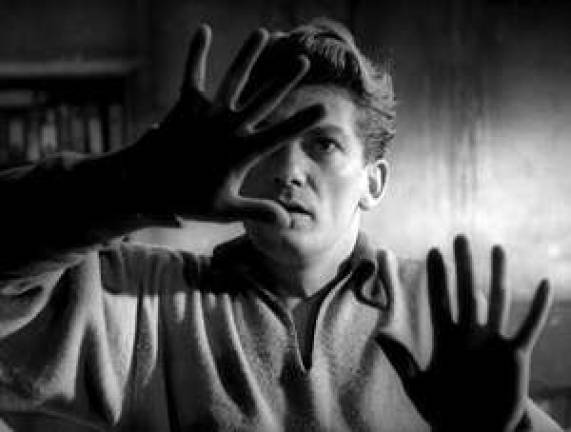Old Is New Again: Ride the Waves of Film History at Film Forum

Film Forum's current retrospective series, "The French Old Wave" (through Sept. 13), continues with more classic films and film history that you need to catch up with in order to realize-in this awful era of comic- book frivolity-how great cinema can be. Though billed as a tribute to the "quality" films that Truffaut and Godard, the revolutionary mid-century directors of the New Wave, disdained, the fact is, these films represent the heritage that was also the French New Wave's foundation. Film Forum's reclamation informs our own era's habits as cinephilia declines and the cinematic past becomes a morass-disrespected, cluttered, uncategorized and forgotten. Would so many indie films be as vapid if filmmakers (and film critics) knew film history? A highly praised feature like Your Sister's Sister not only seems uninformed by cultural heritage but downright hostile to it, pretending originality when it's only sophomoric. At Film Forum, priceless antiques such asThe Earrings of Madame De ?,The Story of a Cheat,Under the Roofs of ParisandForbidden Gamescarry the secret of all great films-the essence of culture-by offering vivid insights into the complexities of human experience. There are some obscurities here, but the classics predominate, and these are films that, given this ahistorical period of cultural amnesia, cannot be presented too often. For those seeking an essential film education, the Renoir wing of this exhibition is crucial:Grand Illusion,Rules of the GameandLa Bete Humaineare not just landmarks but signposts for living. It's exciting to visit the "old wave" and see how new it remains. Jean Cocteau'sBeauty and the Beast(Sept. 9) shames the shrillness of the Disney animated musical, and other than the recent films of Mexican master Julian Hernandez there is nothing in contemporary cinema like Cocteau'sOrphee(Sept. 9)-not just a modernized version of the Orpheus myth but an examination of the thrill in art and the erotic excitement of cultured sensibility. One old master who deserves rediscovery is Rene Clair, and a double bill of his masterpiecesLe MillionandA Nous la Liberte(Sept. 5) will be a revelation to those CGI- and 3D-besotted fanboys who don't yet know the transcendent qualities of filmmaking that is rhythmed and bursting with good humor. The sanity and buoyancy of Clair's films was at one time considered the height of the art form (A Nous la Liberteeven influenced Chaplin'sModern Times); Clair's visionary work might be the salvation of new mediamakers who mistakenly confuse "darkness" with creativity. Perfectly named, Clair believed in light. And surely, those poets and prophets of the French New Wave knew it. The Film Forum program includes lesser lights such as Jean Gremillion, but Gremillion was also part of the same tradition as Renoir and Cocteau and Clouzot and Clement and Ophuls and Guitry; Gremillion just wasn't as great. But they all contributed to the humanities-to the civilization of filmgoers-and that's a habit that today's filmmakers and filmwatchers need to recover. As Jean-Luc Godard said, "There is no new wave, there is only the ocean." Follow Armond White on Twitter @3xchair